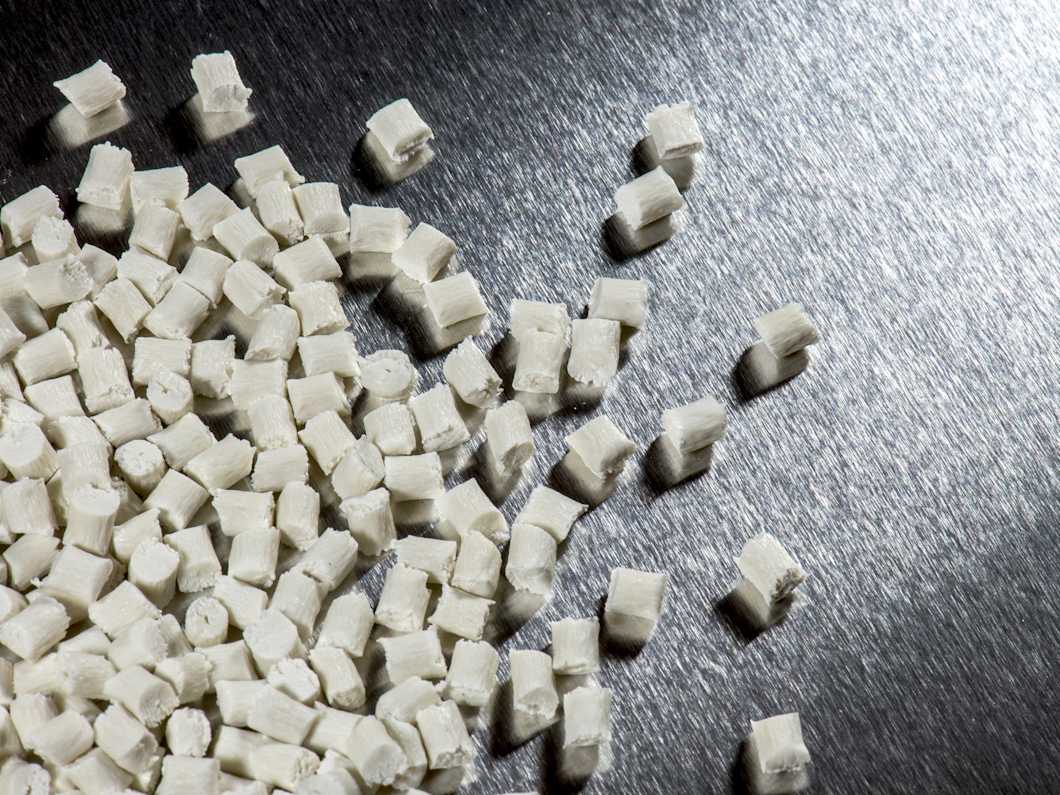Thermomechanical analysis
Thermomechanical analysis (TMA) is a technique used to monitor the physical and mechanical changes a sample undergoes when exposed to force over a range of temperatures and time. TMA is most often used for polymer characterization.

What is thermomechanical analysis used for?
Thermomechanical analysis measures the physical changes a sample undergoes across a temperature range, thus helping to investigate the mechanical properties of polymers and novel materials in different environmental conditions. The parameters that can be studied through TMA include the coefficient of thermal expansion, phase transition temperatures, and crystalline vs. amorphous characteristics of polymers at specific temperatures.
The wide array of properties that TMA can measure gives the technique applications across a range of industries for quality control and the development of new materials. For example, the method can be used to ensure that the properties of novel biobased plastics are comparable to those of traditional plastic.
How does thermomechanical analysis work?
In general terms, thermomechanical analysis is any process that measures the changes in the physical properties of a sample as it undergoes a temperature change. In most cases, this will involve heating the sample through a temperature regime as a constant, external force is applied.
Typically, the sample is attached to a probe and set inside the testing chamber. The probe is coupled to a force generator and a length detector, which will respectively apply a constant force and measure the distance that the probe moves as a result. A variety of different forces can be introduced, such as pulling for tensile testing or pushing for compression or bend testing. The detector measures how the sample moves or deforms as the temperature is cycled, which in turn provides information about how the mechanical properties of the sample are tied to its thermal characteristics.
Sample selection and preparation
TMA is most commonly carried out on a range of solids, such as polymers, ceramics, or composites. Sample preparation will depend on the type of TMA analysis that is carried out and may include cutting into strips for pull testing or casting a solid block for bend testing.
TMA vs. DMA & DSC
During TMA, a constant force can be applied to the material as it is cycled through a temperature regime, allowing the user to monitor how it deforms or undergoes changes based primarily on the temperature. In dynamic mechanical analysis (DMA), oscillating or varying force is applied, which means that the focus is more on determining the effects of the applied force, although the temperature can also be varied. Both DMA and TMA can be used to determine some of the same properties, such as the glass transition temperature.
During differential scanning calorimetry (DSC), on the other hand, a sample is heated with a specific amount of energy, and its temperature change is monitored. This can provide information on the thermal characteristics, such as the specific heat capacity or the phase transition temperatures of the sample, but does not provide information on mechanical changes in the same way that TMA does. To gather a full set of information, TMA, DMA, and DSC can all be used in conjunction.
Need an analysis?
Measurlabs offers high-quality testing services with a variety of thermal analysis methods, including TMA, DMA, DSC, dilatometry, and thermogravimetric analysis (TGA). We are committed to delivering the highest quality analyses with short turnaround times even for batches of hundreds of samples. Reach out to us using the form below to request a quote and open the discussion with our experts.
Suitable sample matrices
- Polymers
- Ceramics
- Metals
- Composites
Applications of TMA
- Determining the coefficient of thermal expansion and glass transition temperature
- Measuring softening and melting points
- Characterization of novel polymers
Ask for an offer
Fill in the form, and we'll reply in one business day.
Have questions or need help? Email us at info@measurlabs.com or call our sales team.
Frequently asked questions
When it comes to determining the glass transition temperature of a material, DMA is more sensitive than TMA.
Measurlabs offers a variety of laboratory analyses for product developers and quality managers. We perform some of the analyses in our own lab, but mostly we outsource them to carefully selected partner laboratories. This way we can send each sample to the lab that is best suited for the purpose, and offer high-quality analyses with more than a thousand different methods to our clients.
When you contact us through our contact form or by email, one of our specialists will take ownership of your case and answer your query. You get an offer with all the necessary details about the analysis, and can send your samples to the indicated address. We will then take care of sending your samples to the correct laboratories and write a clear report on the results for you.
Samples are usually delivered to our laboratory via courier. Contact us for further details before sending samples.
